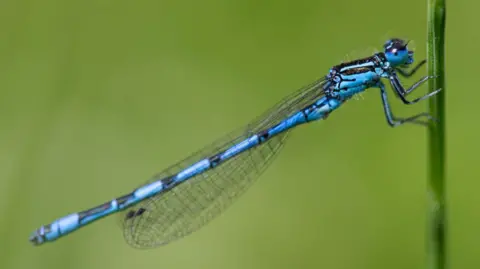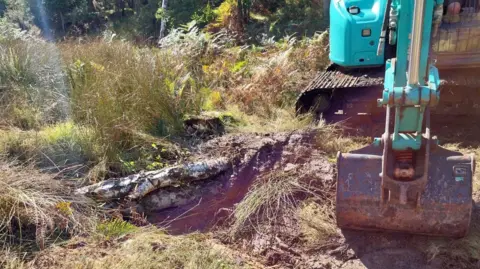Peatland restoration helps rare species
 Phil Cutt / RSPB
Phil Cutt / RSPBRare species are set to benefit from the continuing restoration of peatland habitats.
The RSPB is re-wetting areas at Stoborough Heath and Salterns Copse near Wareham in Dorset which had previously been drained for forestry and farming.
Wet peat is the UK's biggest carbon store as well as hosting wildlife and plant life, including the rare Southern Damselfly.
The work, which will continue until the end of October, is part of a wider project to restore 16 wetland sites.
 RSPB
RSPBLeaky dams are being built using timber from trees felled on site as well as other locally sourced wood.
Project manager Grace Herve said: "By blocking up all these drainage systems, not only will we help to reduce nuisance flooding, but we can start to actively store more water in our systems and reconnect the landscapes.
"More water and plants mean a healthier ecosystem, improved biodiversity, and security for our landscapes into the future.
"With the threat of climate change these measures, we hope, will help mitigate some of the challenges ahead."
More than 80% of the UK’s peatlands are damaged and dried out.
The Dorset Peat Partnership, formed in 2021, is made up of seven landowners - the RSPB, Dorset Wildlife Trust, Natural England, The National Trust, Forestry England, BCP Council, and a private landowner.
It was awarded £1m of funding from the Nature for Climate Peatland Grant Scheme to restore the peatland sites across the county between 2023 and 2025.
You can follow BBC Dorset on Facebook, X (Twitter), or Instagram.
